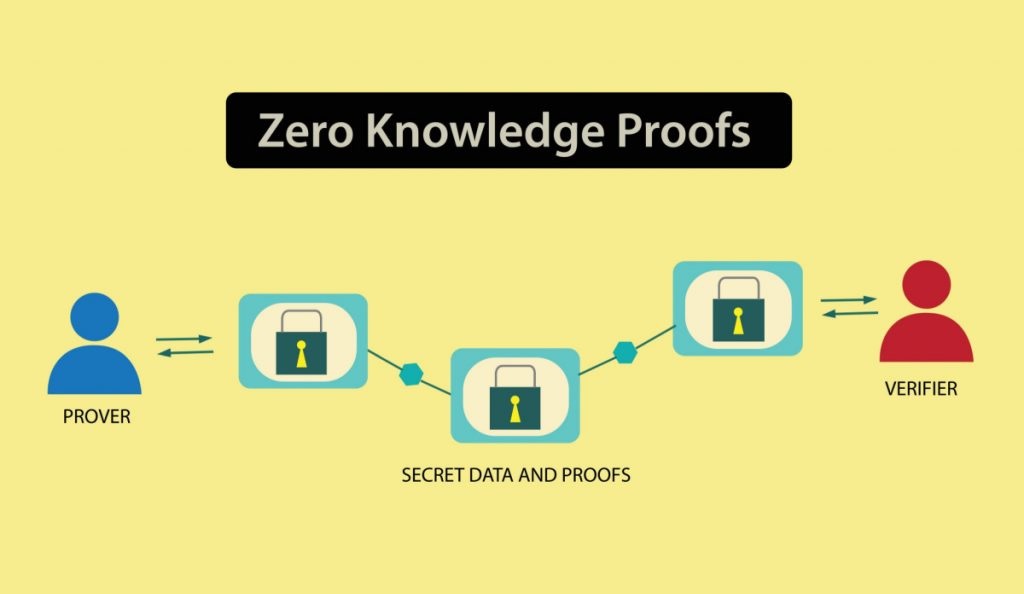In the realm of digital transactions and decentralized ledgers, Zero-Knowledge Proofs (ZKPs) are the unsung heroes, preserving our privacy and securing our data. These cryptographic marvels, introduced in 1989 by the brilliant minds of Silvio Micali, Shafi Goldwasser, and Charles Rackoff have transformed the way we think about security, authentication, and trust in our virtual world.
This article delves into the workings of ZKPs and explores the myriad advantages they offer based on the insights gleaned from a paper titled “The Knowledge Complexity of Interactive Proof Systems” made by Micali and company as well as a related article from Crypto Valley Journal.
A Dance of Secrecy and Validation
Zero-Knowledge Proofs, or ZKPs, operate as an intricate dance between two parties: the prover and the verifier. The prover aims to convince the verifier that a statement is true without disclosing any additional information.

Let’s explore how this dance unfolds:
The Statement
Imagine a statement as the core of this dance. It could be as simple as “I possess a secret key” or as complex as “I know a solution to a mathematical problem.” The prover selects a statement they wish to prove.
Proof Generation
Here, the prover crafts an elaborate proof based on their knowledge of the statement’s truth. The magic lies in the fact that this proof, while convincing, divulges nothing confidential.
Verification
The verifier, on the other hand, plays the role of the skeptic. Their goal is to scrutinize the proof and determine its validity. They must be sure that the statement is true without exposing any secret.
The Guardian of Truth
ZKPs come equipped with two critical properties: soundness and the Zero-Knowledge Property.

Soundness
This property ensures that only an honest verifier will be convinced if the statement is true. The prover cannot hoodwink the verifier into accepting a false claim.
Zero-Knowledge Property
The most remarkable aspect of ZKPs is their ability to keep secrets. The proof does not unveil any additional information beyond the statement’s validity. The verifier gains confidence without uncovering any undisclosed knowledge.
The Need for ZKPs
In our interconnected world, where data breaches and security threats abound, the demand for innovative solutions is paramount. ZKPs offer a way to prove statements’ veracity without spilling additional secrets.
Blockchain Revolution
The rise of blockchain technology has brought forth new privacy and security challenges. ZKPs emerge as a potent tool for concealing transaction details, ensuring privacy while validating transactions’ legitimacy. Financial privacy and digital currency adoption hinge on this breakthrough.
Privacy Preservation
Privacy has become a prized possession in the digital age. ZKPs empower individuals to prove claims without unnecessary data disclosure, essential in domains like financial transactions and authentication protocols.
Fortifying Security
ZKPs play a pivotal role in bolstering security. They allow individuals to prove their knowledge or authorization without revealing confidential data, mitigating the risk of data breaches and fraud.
Trust and Verification
Trust forms the bedrock of many interactions, from business transactions to voting systems. ZKPs enable trust without full disclosure, fostering transparency while preserving confidentiality.
Identity Verification
ZKPs offer a robust mechanism for identity verification, access control, and secure computations, enhancing trust in various applications.
Final Thoughts
In an era dominated by data-driven technologies and growing privacy concerns, Zero-Knowledge Proofs (ZKPs) emerge as a game-changing concept. They offer a robust solution to protect privacy, enhance security, and establish trust without unnecessary data exposure.
As we progress in our increasingly interconnected world, the continued development and implementation of ZKPs will be crucial in preserving privacy, strengthening security, and fostering trust.










